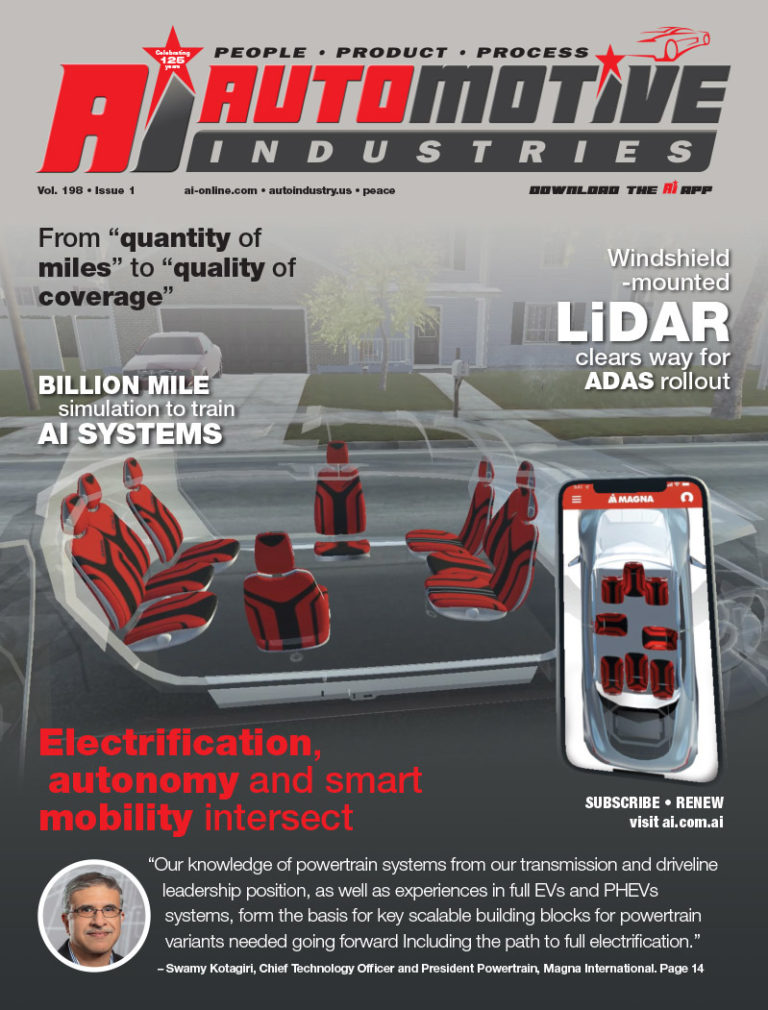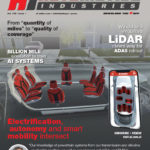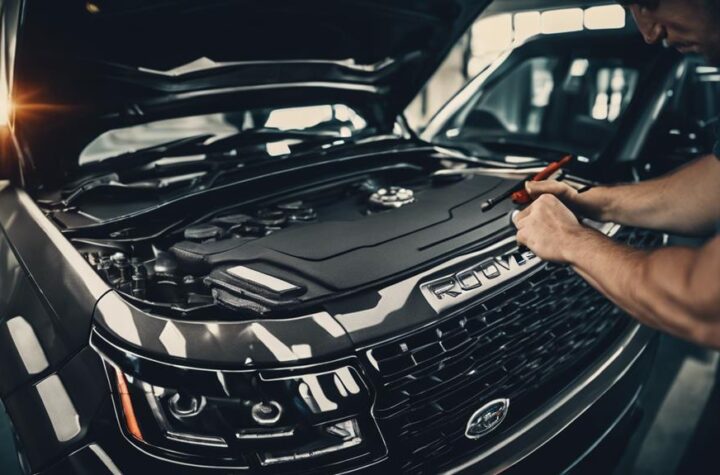
A couple of months ago, Canada Lithium Corporation announced that its pilot plant flotation, roasting and hydrometallurgical processing have been completed. The 99.9 per cent lithium carbonate samples from the pilot-scale tests were shipped to potential customers for further testing against specification standards on downstream products, such as lithium-ion batteries. To merit the ‘battery-grade’ designation, lithium carbonate product must meet a minimum 99.5 per cent level; material above this level usually attracts premium prices.
The samples were a huge boost for the Canadian firm which describes itself as a ‘clean tech’ mine developer. The company is undertaking a feasibility study of its Quebec Lithium Project near Val d’Or, the geographical heart of the Quebec mining industry. A positive report would lead to construction of an open pit mine and processing plant capable of producing by late 2012 approximately 43 million pounds per year of battery-grade lithium carbonate to meet the growing needs of the emerging global market for electric and hybrid electric vehicles.
“The quality of this latest batch, as was the case with earlier runs of material, demonstrates that the Quebec Lithium Project consistently yields samples in excess of battery-grade standards set by international battery manufacturers,” said Peter Secker, president and CEO of Canada Lithium Corp in a press release.
The company was particularly pleased with the low levels of impurities, especially those of chlorine, sodium and magnesium, which were below standards required by international manufacturers of lithium batteries for electric vehicles. “Lithium-iron-phosphate batteries, which are emerging as one of the front-runners in lithium-ion battery formulations, are particularly susceptible to levels of chlorine and sodium salts in the final lithium carbonate product. Based on the pilot plant results, lithium carbonate from the Quebec Lithium Project could be considered a premium product,” said Secker.
The company says that lithium ion batteries have become the rechargeable battery of choice for the makers of cell phones, laptop computers, shavers, power tools, and hybrid cars. “But the true game changer is the global demand for environmentally friendly plug-in electric cars. The lithium-ion battery advantage is obvious over its competitor (nickel metal hydride, for example). Lithium-based batteries win hands down in virtually every category such as energy density – about three times that of its nickel counterpart. Its weight-to-power ratio — pound-for-pound Li delivers three times the energy, longer life, faster re-charge, no ‘memory’ effect – charge it up no matter the level of the current charge and its a battery for all seasons, it operates down to temperatures of -60C,” explains Canada Lithium.
According to a report in Reuters, lithium-powered batteries will dominate the electric car industry in the next five to ten years. This is because of the material’s high-energy density, Liberum Capital was quoted by Reuters as saying. “Often the discussion is about what comes after lithium. For the foreseeable future – five or ten years – it’s lithium and lithium compounds,” said Adam Collins, analyst at Liberum Capital to Reuters. He added that most car makers would choose batteries using lithium – a silvery-white metal – with nickel and cobalt elements – known for small size and big power surge. According to Reuters, which quotes a report by Roskill Information Services, demand for lithium in batteries had been increasing by more than 20 percent annually in recent years but like most metal demand, was hit by the global economic downturn.
This is changing as more and more hybrids and electric vehicles opt for lithium ion batteries. For example, the Toyota Prius is all set to get lithium ion batteries by next year when the Prius Minivan version will also be rolled out. Both the sedan and minivan versions of the Prius will receive the lithium ion power at a modest price hike. Reports say that the lithium ion batteries which will replace the conventional zinc acid batteries are expected to result in a weight drop that will enable a lighter, quicker Prius.
For Canada Lithium Corporation, this is good news. “Only a year ago, the mileage range of electric cars was about half that of gasoline-powered cars. However, the distance gap is steadily narrowing as research into lithium-ion batteries continues to intensify and yield results. Costs associated with electric cars should also continue to decline as electrics begin to make the significant inroads anticipated in the world-wide car market,” says the company.
Automotive Industries spoke to Peter Secker, president and CEO of Canada Lithium Corp.
AI: Tell us about the revolution happening in the auto industry as far as electrification of vehicles goes.
I think most people in North America are aware of the two early entrants — Nissan Leaf and the Chevy Volt — into the electric vehicle (EV) field. Less well known is the fact that just about every car maker in North America, Europe and Asia has an EV either in late-concept or development/assembly-line stage. In our view, the EV/ hybrid industry is only in its infancy or, as Winston Churchill might have put it, this is only “the end of the beginning” of a brand new sector in the auto industry. It’s not going to go away. It’s only going to get bigger. And as it does we will be there to supply a hungry market with battery-grade lithium carbonate.
AI: What are the advantages of pure electric vehicles?
The most apparent, especially to a world concerned about global warming, is that this is an emissions-free vehicle. No tailpipe! To the individual consumer, the price tag is generally higher than conventional vehicle prices, but that margin should evaporate as EV unit sales begin to climb. In terms of operating costs, the EV beats the internal combustion engine hands down. EV owners will not be stopping at gas pumps.
On a larger scale, the dawning of the age of the electric car is timely given that the world may well be approaching a period of “peak oil.” If so, an alternative to the ICE couldn’t have come along at a better time.
In addition, countries such as China and the U.S. would welcome any decrease on their heavy dependence on foreign oil.
AI: What role will lithium-powered vehicles play in this revolution?
Simply put, lithium is utterly central to this revolution. Lithium-ion batteries will power this revolution.
AI: What are some of the latest developments in lithium-ion batteries for the automotive sector?
The latest developments I see regarding lithium ion batteries are around increasing buyer interest and demonstrating the advantages of EVs. Various alternate formulations continue to be explored but nothing so far has surpassed the safety, weight and energy output of the lithium ion. The biggest challenge is the cost which many expect to reduce once larger volumes are being manufactured and production systems are more automated. Almost all forecasts I have read suggest that as fuel costs rise, the advantages of EV’s will become clearer and the number of buyers will increase.
AI: What role do you expect Canada Lithium to play in the new environment?
By late 2012, our mine and processing plant should be producing about 43 million pounds of battery-grade lithium carbonate per annum, fulfilling a key role as a secure Canadian source for battery makers around the world. In fact, our operation is only five hours trucking time from the port of Montreal or about 14 hours from Detroit.
AI: Tell us about Canada Lithium’s mining prospects in Quebec – what kind of reserve is expected in this area?
We have published a reserve figure that would satisfy our production requirements for at least 15 years. But we have also demonstrated that there may be a much larger mineral resource on the property. So, there may be opportunity for expansion down the road.
I also wanted to mention that Quebec is viewed internationally as a mining-friendly jurisdiction, largely because of a positive government environment. We feel that it’s a great place to build a mine.
AI: What are some of the challenges facing lithium-ion batteries? There have been concerns on safety – a few years ago some laptop batteries made of lithium-ion exploded. How have these issues been dealt with?
The incidence of battery-related occurrences has been absolutely miniscule compared with the vast number of electronic devices extant carrying lithium-ion batteries. So, I don’t think safety concerns are much of an issue at all.














































 Nissan and GMto Be Honored for Launching the First Mass-Market Plug-in Electric Vehicles in the US
Nissan and GMto Be Honored for Launching the First Mass-Market Plug-in Electric Vehicles in the US


